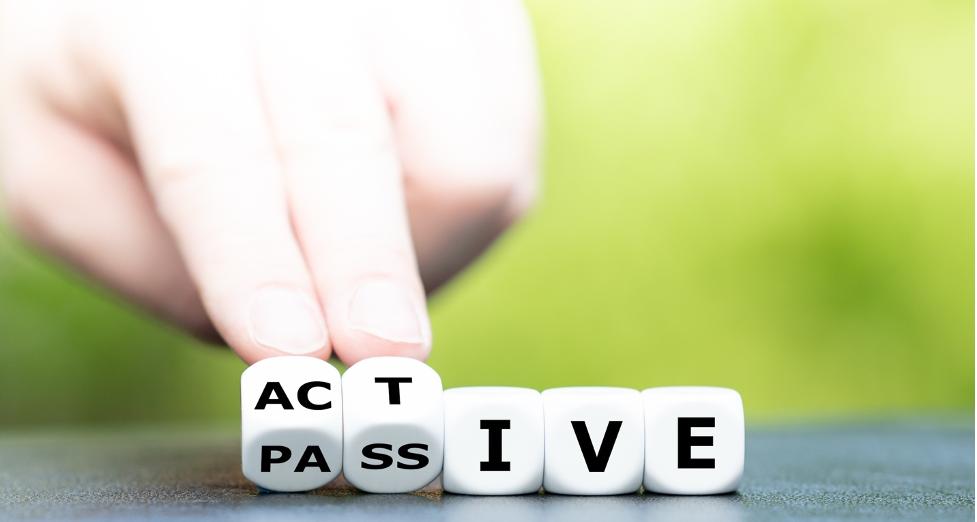An essential thing to remember about recovery is that it is a process. There are two ways to recover from alcohol use and substance use disorders: passively and actively. Passive recovery involves abstinence from drugs or alcohol without treatment. In contrast, active recovery requires both abstinence and professional care. Between the passive and active ends of the recovery spectrum, exists variations in degree and many combinations of both extremes—depending on the individual in recovery. The choice between these two methods usually depends on the severity of the condition and the support system in place.
Understanding Passive Approach to Recovery
A passive recovery approach can be a helpful strategy for people who feel they can manage without traditional interventions and recovery protocols. This approach is ideal for the person who doesn't want to have anyone involved in your recovery. An example of this could be a person who one day decides to quick cigarettes cold turkey without getting guidance from their doctor, attending a smoking cessation group, using nicotine patches or other quitting aids.
There isn't much support in passive recovery because a person lacks collaborative relationships, which makes an individual opting for this approach more vulnerable to enticement and aggravation of triggers and relapse sooner than if they were to take a more active method. Relapse is not a guarantee but almost inevitable whether choosing to recover passively or actively.
Recovery isn't easy, and a passive recovery only makes things more complicated. For example, a person entering their sobriety in this way may know where they want to go in the long run—stop drinking or stop using substances. They may even know logical and systematic ways to achieve their end goal—stay away from people, places and things. But with a passive approach to recovery, a person may not be paying attention to the thoughts and feelings that arise in the current moment.
Passive recovery can lead to isolation and reluctance to seek help or communicate needs when issues arise. So, it's important to remember that passive is not progress and can complicate your recovery in the long run.
The Benefits of Active Recovery
As the term suggests, in active recovery a person is actively involved in their treatment and maintains their sobriety with daily choices that are right for a moment because that is where they are—consciously, in the present moment. Faith is a catalyst for change most times, but with active recovery, the end goal is not something longed for or wished into existence. Your sobriety becomes something you work hard for every day to attain.
It's tough to tackle substance use or alcohol use disorders on your own. Being cut off from resources and a support system, as seen with the passive approach, may make the recovery process more challenging than it needs to be. As a result, active recovery improves your chances of healing while also leading a more contented and healthy life.
Active recovery goes far deeper than merely going through the motion. Your attendance in therapy or doctor visits, participation in groups, habit swapping, trigger resistance and reach outs to supportive people in crisis or not are deliberate actions you make to keep control of your life where it belongs—in your hands.
Getting Professional Help and Preparing for Recovery
While many people who have an addiction think that they can do it independently, it doesn't always work—not for everyone. Also, it depends on the substance you're attempting to give up. However, the consensus among experts is that recovery cannot be considered the most successful unless an individual has been willing to follow through with treatment.
Once you've decided to stop drinking or using drugs, the first thing you should do is contact your primary care physician or mental health professional and inform them of your decision. Your provider can guide you in the safest way to stop smoking, drinking or whatever substance you want to quit.
Consider possible withdrawal.
There are withdrawal symptoms to consider most times that could be dangerous, if not fatal. Medications prescribed by your doctor may be of help in treating those symptoms. Also, your physician or a counselor may recommend medically supervised detox or time off from school or work to begin your recovery in residential rehab.
Get rid of everything that may entice you.
If you want to quit smoking cigarettes, for example, toss away ashtrays and unsmoked cigarettes. For individuals with alcohol use disorders, empty your refrigerator and pantry of any alcoholic beverages. If you have an opioid use disorder, you may drop off unused medicines at a police station or other designated drop-off locations.
Prepare for cravings.
Keep a plethora of amusing diversions close at hand. When smokers quit, many keep their hands and mouths busy with carrot sticks or licorice to fight cravings. Sometimes, watching a good movie may help other substance users forget about their drug cravings.
Get your support squad together.
Inform your loved ones you want treatment. When you're going through the withdrawal process, they'll be there to support and divert you when they can. Consider joining programs like Narcotics Anonymous or Alcoholics Anonymous.
If the end goal is to be sober, then seeking help and getting treatment from an addiction expert or rehabilitation facility is an excellent first step to your recovery. Along with being mindful of your environments, various social cues and trigger, it’s the daily choices you make that are the most effective actions you can take to grab your addiction by its monkey tail and live a healthier and happier life.


